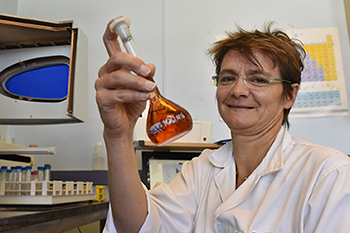Latest News Archive
Please select Category, Year, and then Month to display items
29 March 2019
|
Story Lacea Loader
 Edward Kieswetter, newly appointed SARS Commissioner.
Edward Kieswetter, newly appointed SARS Commissioner.
The Chairperson of the Council of the University of the Free State (UFS), Mr Willem Louw, extended a message of congratulations to Mr Edward Kieswetter on his appointment by President Cyril Ramaphosa this week as Commissioner of the South African Revenue Service (SARS).
Mr Kieswetter served as Deputy Chairperson of the UFS Council from 2008 to 2014 and was Visiting Professor at the university’s Business School until 2018.
“On behalf of the Council and the university community, I wish Mr Kieswetter well in his work as newly appointed SARS Commissioner. It is evident that the high-level selection panel made an exceptionally good choice for this crucial position. Mr Kieswetter’s vast experience as former SARS deputy commissioner, his subsequent track record of transformative leadership, and his experience in turning around a large institution will serve him well in this new role,” says Mr Louw.
Released by:
Lacea Loader (Director: Communication and Marketing)
Telephone: +27 51 401 2584 | +27 83 645 2454
Email: news@ufs.ac.za | loaderl@ufs.ac.za
Fax: +27 51 444 6393
UFS Ground Studies Laboratory receives accreditation to international standard
2016-03-18

Lore-Mari Deysel, Deputy-Director of the institute for Groundwater Studies.
Photo: Charl Devenish |
The Institute for Groundwater Studies (IGS) Laboratory at the University of the Free State is on equal footing with international testing labs. With its accreditation in March 2016 by SANAS (South African National Accreditation System), the IGS Laboratory now officially meets global standards.
Quality of water
The IGS Laboratory mainly analyses the quality of water samples. When it was originally established in 1989, the lab’s central function was to conduct testing for researchers at the institute itself. “After the public and water boards realised their need to analyse water samples, the IGS Laboratory expanded to deliver a service to these clients,” says Lore-Mari Deysel, Deputy-Director of the institute.
Since suppliers and regulatory authorities will not accept test or calibration results from a lab that is not accredited, the IGS initiated the accreditation process.
Accreditation to international standard
In order to be deemed technically competent and able to receive accreditation, labs must meet the ISO/IEC 17025 standard. ISO/IEC 17025 was first issued in 1999 by the ISO (International Organization for Standardization) and the IEC (International Electrotechnical Commission).According to Deysel, this is the single most important standard for calibration and testing laboratories around the world.
“Laboratories that are accredited to this international standard have demonstrated that they are technically competent and able to produce precise and accurate test and/or calibration data. Furthermore, it demonstrates that the university has the capacity to supply valuable and reliable services alongside the academy,” Deysel says.